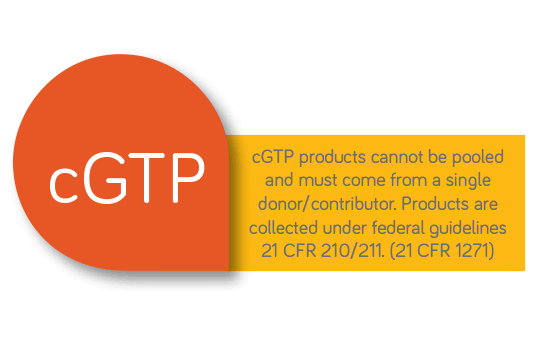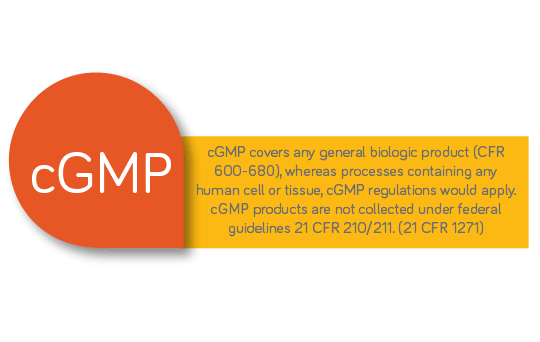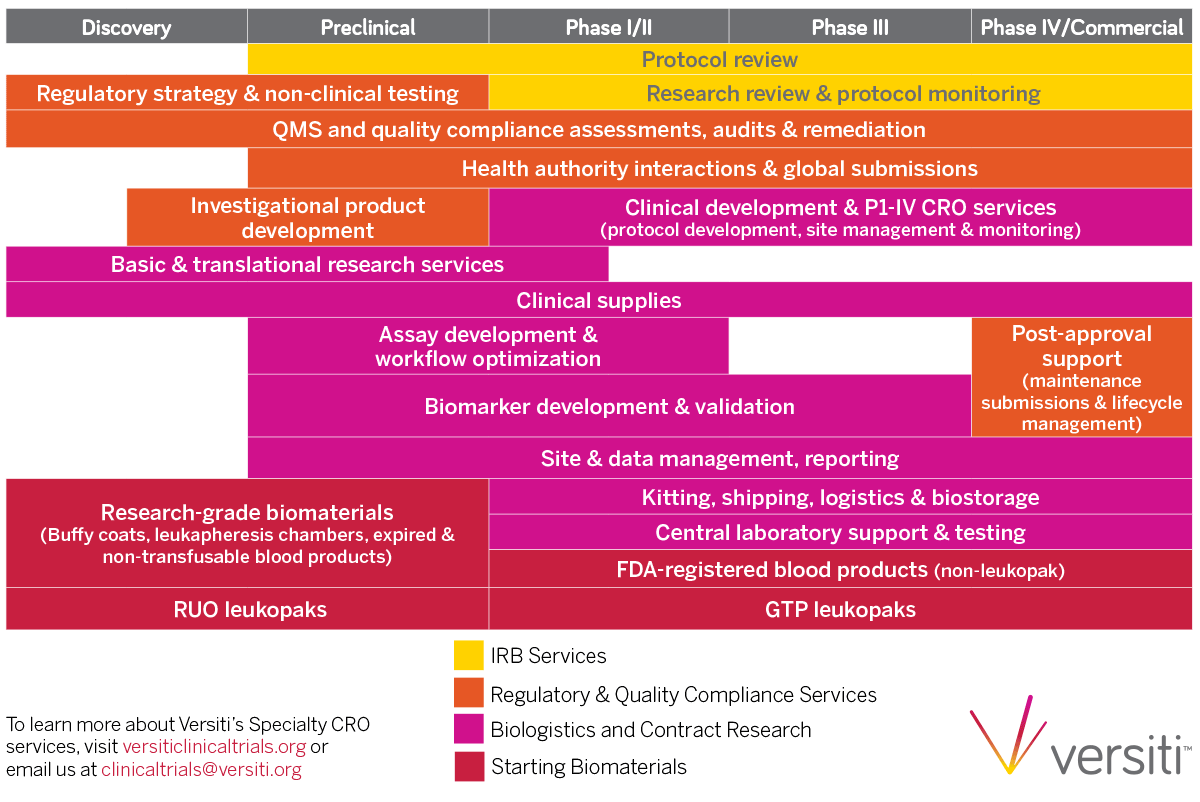Several different types, or tiers, of leukopak products are available on the market. Many companies refer to different tiers of products by different branded or descriptive names, further complicating the matter.
Research Use Only (RUO) Products
Research use only (RUO) products are materials used for projects in the investigation phase. Under the regulations, RUO products are not required to undergo infectious disease testing, and the company selling the product is not required to register with the FDA.
Two federal regulations under 45 CFR 46 - Protection of Human Subjects are in place for RUO cellular and tissue products:
- The product must be labeled “For Research Use Only. Not for use in diagnostic procedures.”
- Human tissue must be procured under an IRB protocol, or sourced from someone who has obtained board-informed consent from the subject.
Because these products are intended for early investigation and have fewer guidelines surrounding their production and procurement, they are often the most cost-effective leukopak products for research and development. While this makes them appealing, it is important to be aware of key considerations and risks. First, not all sites selling RUO-grade tissue products are registered with the FDA or any federalagency. To mitigate this, it is incumbent upon the researcher to determine whether their source is FDA-registered. The FDA maintains a directory of all sites that have been registered for more thana year.* If research is part of a federal grant, material providers must provide a Federal wide Assurance (FWA) number. If materials are not consented appropriately, the data in your scientific papers can beaffected, and published scientific papers could be retracted. Additionally, the research could lose critical data that would help researchers publish and require the study to be redone.
Further, not all sites that sell RUO-grade tissue products have oversight by an institutional review board (IRB). Informed consent and consent for procedure are frequently misunderstood in the medical community. Most researchers know to get an IRB for their research but fail to ask if the materials sourced are likewise approved by an IRB. It is important to note is that some NIH grants require an IRB Certificate of Conformance to verify that the IRB follows all federal guidelines. To mitigate the risk of procuring a product that is not collected under IRB oversight, ask the company for a copy of the Certificate of Conformance or an IRB protocol. Lastly, because infectious disease testing is not required for RUO products, the type and quality of IDT testing performed across RUO leukopak providers varies. Be sure to ask for clarification from your material provider to ensure your RUO leukopaks receive the level and quality of infectious disease testing needed to prevent contamination in your research and to protect your staff as necessary.
Current Good Manufacturing Practice (cGMP) Products
cGMP leukopaks are often referred to as “commercial grade,” “gold standard,” or “GMP suitable.” There are several regulatory nuances to be aware of when procuring a product identified as cGMP leukopak. cGMP products are not collected under federal guidelines 21 CFR 210/211. Some cGMP products can be collected under 21 CFR 606 titled “Current Good Manufacturing Practice for Blood and Blood Components.” These regulations cover both allogeneic and autologous transfusion. In addition, infectious disease testing must occur and be disclosed in the case of further manufacturing.
Current Good Tissue Practices (cGTP) Products
Implemented in 2001, FDA 21 CFR 1271 creates an electronic registration for organizations that manufacture human cellular and tissue-based products. Products collected under these guidelinesare classified as cGTP products and have specific requirements around donor eligibility, operational standards and procedures preventing the introduction, transmission and spread of communicable diseases. Further specific regulations in 21 CFR 1271 for manufacturers of devices and drugs tie into 21 CFR 210/211 and include practices on environmental monitoring, tissue/cellular product manipulation beyond collection, and stringent IDT requirements 30 days prior to, as well as during, the collections procedure. Lastly, pooling of cGTP products is not permitted.
Differences between cGMP and cGTP Products
cGTP or cGTP-grade products are required for any trials later than phase 1, or for research specific to new devices, drugs or biological submissions. In both product categories, a Certificate of Analysis (COA)that details infectious disease testing results, as well as the inclusion of any user-defined criteria, will be provided.



